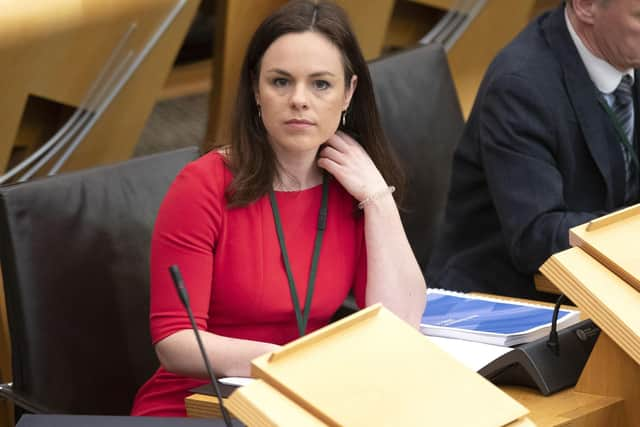Time to consider tax on Scots firms making 'extra profits' post-Covid, MSPs told
The impact on tax revenues in Scotland "will be considerable" and the Scottish Human Rights Commission (SHRC) has called for a more "progressive" system to maximise resources.
In a submission to Holyrood's finance committee ahead of the Scottish budget for 2021/22, the watchdog warns women, disabled people and ethnic minorities will be worst hit by the impact of the pandemic in Scotland because they are among the country's lower earners.
Advertisement
Hide AdAdvertisement
Hide AdAnd the document warns that addressing these inequalities must be the driving force of recovery.


"Scotland's pre-existing inequalities must be at the heart of how we move forward as a society," it states.
"If there is a not a genuine desire to tackle the structural and systemic causes of these inequalities, many of which are economic, then any proposed solutions will in all likelihood fail to deliver transformational change."
The submission adds: "All possible levers available to the Scottish Government to address the these inequalities moving forward need to be examined."


The commission sets out a range of areas for consideration, although many of these would be outwith the powers of the Scottish Parliament and lie at Westminster.
These include taxes on wealth and corporate revenues "from sectors making extra profits due to to the pandemic (such as the digital economy, the financial sector in general, pharmaceuticals and insurance companies with extraordinary returns)”.
It also calls for "effective policies" against tax avoidance and evasion, which have "deprived states of valuable resources that are more needed than ever”.
Benefits should also be withheld from corporations that do not comply with their tax duties and use "tax havens”.
Advertisement
Hide AdAdvertisement
Hide AdCountries should also consider assuming a co-ordinated position in international negotiations on tax issues, to end the "race to the bottom in corporate taxation" that may become increasingly relevant for the UK in a post-Brexit world.
Up to a third of Scotland's workforce was furloughed at the height of the pandemic, with a subsequent impact on tax revenues, as the UK Treasury was forced to cover salaries.
Scotland's Finance Secretary Kate Forbes has already warned she faces tough choices in next year's budget.
But the submission for the SHRC calls for a more open approach from the Scottish Government in setting its spending plans.
"Fiscal transparency in Scotland remains below what is considered to be acceptable by international best practice standards," it states.
"Public participation in formulating policy - on tax and spending - contributes to a more open relationship between government and civil society and can lead to both a more balanced distribution of public resources and greater accountability. However, at present the lack of fiscal transparency hinders public participation."
Scotland is a "no wage or low wage economy" with just 2.5 million of the potential 4.5 million working age adults in Scotland earning enough to pay tax before the pandemic, with 300,000 fewer women taxpayers than men.
Comments
Want to join the conversation? Please or to comment on this article.